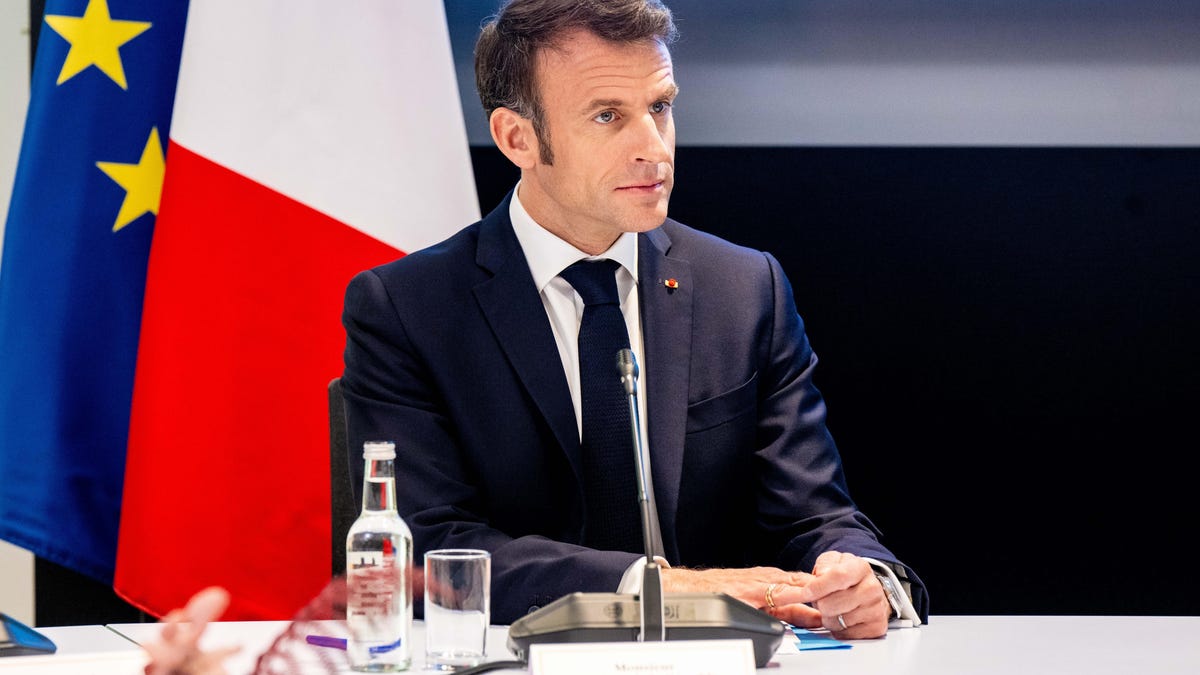Things in France have been looking pretty grim lately. Ever since a police officer shot and killed a teenager during a traffic stop last week, the country has been plagued by protests and ongoing riots—the likes of which have led to mass arrests, an estimated $1 billion in property damages, and a general fear that the country may be on the verge of total anarchy. Now, as France looks more and more like a nation on the edge, French president Emmanuel Macron has suggested a potential solution to the chaos that sounds straight out of a third-world dictator’s playbook: let’s just have the government throttle access to large parts of the internet until this whole thing blows over.
During a recent meeting between Macron and hundreds of French mayors whose communities have been impacted by rioting, the president suggested that—in the future—the government could censure young people’s access to social media platforms as a means of quelling dissent. The logic here appears to be that because young people are behind much of the rioting and because social media is a locus for radicalization and political organizing, cutting off access to these platforms might help stifle dissent.
“We need to think about how young people use social networks, in the family, at school, the interdictions there should be … and when things get out of hand we may have to regulate them or cut them off,” Macron said during the meeting. “Above all, we shouldn’t do this in the heat of the moment and I’m pleased we didn’t have to. But I think it’s a real debate that we need to have.”
The only problem with this little plan is that it sounds less like something a Western leader would propose and more like the designs of a third-world autocrat. Critics immediately castigated Macron for his comments, accusing him of endorsing authoritarian tactics in his pursuit of social order. The government subsequently responded to the backlash, claiming that the French leader was not talking about a “general blackout” of the internet but only the “occasional and temporary” zapping of social media access.
By and large, the only countries that have resorted to these tactics have been well-known autocracies and third-world countries—places like China, Russia, Iran, India, Kenya, and Cuba, among others. Such government actions have been roundly criticized by civil liberties advocates, who see the neutralization of web services as a clear overstepping of governmental authority.
What the heck is happening in France right now?
France is currently undergoing one of the worst episodes of social unrest that the country has seen in living memory. The recent violence and chaos stems from an episode that transpired just last week, in which a traffic cop shot and killed Nahel Merzouk, a 17-year-old French teenager of Algerian and Moroccan descent. Police say Merzouk failed to stop the vehicle when asked and could have struck them or others with the vehicle; however, Merzouk’s friends, who were in the car when he was shot, have claimed that the teen was beaten with a pistol butt, which led him to take his foot off the brake pedal.
Merzouk’s death initially spurred calls for police reform and anger over perceived racial iniquities in France but this swiftly gave way to large scale rioting, looting, and the firebombing of cars.
While the recent riots seem sudden and explosive, broad discontent with the Macron government has been building for some time. Arguably, the nation’s current troubles can be traced back to the president’s decision to reform the country’s pension system earlier this year. Despite widespread criticism of these policies, Macron rammed them through in April, managing to get the rest of the French government to rubber stamp them despite concerns over their legality and economic impact. The reforms raised the French retirement age from 62 to 64 and led to widespread protests, some of which turned violent and led to mass arrests.
Ever since then, the relationship between the French government and the French people has been strained at best, and things just seem to be getting worse and worse. I doubt that Macron latest strategic fumble—threatening to take people’s internet away—will help much in that department.

